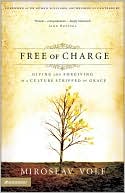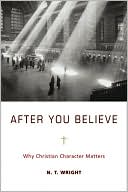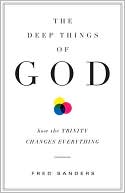- Make your accountability partner drop ten bucks in the jar for that grievous sin
- Make your accountability a circle of cheap confession by which you obtain cheap peace for your troubled conscience.
- Ask one another moralistic questions that reinforce moral performance.
- Pilfer through God’s Word for an experiential buzz or life connection.
- Go public with your respectable sins while cherishing your secret sins.
- Know your partner’s sin better than you know your own.
- Passively stand by as your sin slowly puts you to death.
- Make accountability, not Jesus, central to your group.
Thursday, January 20, 2011
8 Ways To Ruin Your Accountability Group
From Jonathan Dodson.
Wednesday, January 19, 2011
Go and Make Disciples
And Jesus came and said to them, “All authority in heaven and on earth has been given to me. [19] Go therefore and make disciples of all nations, baptizing them in the name of the Father and of the Son and of the Holy Spirit, [20] teaching them to observe all that I have commanded you. And behold, I am with you always, to the end of the age.” (Matthew 28:18-20)“All authority in heaven and earth has been given to me.” These are Jesus parting comments as he ascends for a time to the Father’s right hand. Modern translation: “The universe is under new management.” The old managers of pride and rebellion, pain and death, sorrow and fear have come to an end. A new day is dawning, and the new managers of repentance, healing, forgiveness, redemption, and joy are moving in by the authority of the new King, Jesus. From here on out there are but two choices for humanity, become a citizen of the new King or remain the citizen of a fallen kingdom that is about to be ruined and judged. All the world needs to get this memo. So how does this message factor into our daily life?
“Go therefore.” Answer #1: Deliver the memo. The NT calls it the “gospel,” which means simply “good news.” Did you get that? It’s “news.” Something not previously known and must be heard. Jesus commissions his disciples, his church, to be the tellers, the witnesses, the heralds, the postmen, the bloggers of this news. Thus, the command to “go.” Not wait for a co-worker to ask just the right question, or for a neighbor to meander coincidentally into a church service, or a friend to tune into K-LOVE or flip the channel to a Billy Graham Crusade. That’s a passivity that finds no place in Jesus’ instructions. Jesus commands us to act, take the initiative, be the aggressor.
“Make Disciples.” Jesus doesn’t command us to go and tell the nations, “Repeat after me, ‘Dear Jesus, I’m sorry for my sins. Please forgive me. Thank you for dying on the cross. Amen,’” or any version of that. We don’t “go” simply to seek one-time decisions, or even to disseminate correct theology, but to “make disciples.” And we do this by “baptizing them” and “teaching them” all Jesus commanded. We baptize to initiate them into a new citizenship: one that dies to self and lives for the King. And we teach them how to live out that citizenship in the whole of their life. Thus our mission is to recruit citizens for the kingdom of God: men and women loyal only to Jesus, who conform their lives to the new order of repentance, healing, forgiveness, redemption, and joy and shun the old order of rebellion, pride, and self rule. To be Jesus’ witness, then, means to proclaim the gospel to those who have never heard, or who have heard and rejected. But to be Jesus’ witnesses also means going to the man who call himself a Christian, who prayed a prayer 10 years ago, who is a decent person, who maybe even goes to church regularly, but who lives under the old order with more loyalty to his goddess Prosperity than he has for Jesus.
A World Without Jobs
An intriguing article by Andy Crouch on the gospel alternative offered by Steve Jobs. Here's a sample:
As remarkable as Steve Jobs is in countless ways—as a designer, an innovator, a (ruthless and demanding) leader—his most singular quality has been his ability to articulate a perfectly secular form of hope. Nothing exemplifies that ability more than Apple’s early logo, which slapped a rainbow on the very archetype of human fallenness and failure—the bitten fruit—and made it a sign of promise and progress.
Modding Red Green Style
Most comedy is hit and miss and that's certainly the case with the Red Green show, but the do it yourself skits are almost always hit.
Friday, January 14, 2011
A Burden of Rest
Come to me, all who labor and are heavy laden, and I will give you rest. [29] Take my yoke upon you, and learn from me, for I am gentle and lowly in heart, and you will find rest for your souls. [30] For my yoke is easy, and my burden is light.” (Matthew 11:28-30)
The logic of Jesus’ words is startling: throw off your burdens to gain his rest and gain that rest by taking on a burden. Are we going in circles here? Jesus explains, “For my yoke is easy, and my burden is light.” Huh?
The Rest of God. What exactly does it mean to rest? Refrain from work, take a nap, veg on the sofa? “Rest” of course is a very common theme in the Bible. On the seventh day of creation God rested and he requires his people Israel to follow his example by resting on the seventh day of the week, the Sabbath. So what does it look like for God to rest, and why does he do it? God of course doesn’t rest because he needs a recharge. No, God rests because he is done, because his work is so complete that nothing else needs added, because his work of sustaining and ordering the life and energy in billions of galaxies comes easier and more natural to him than napping does to us. Not that God is bored. He is no more bored than an artist who has poured his whole being onto a canvass and stands back amazing even himself at how exquisite it all turned out. God’s rest is all energy and life and joy. It’s not lying still on a soft bed. It’s a dance.
The Rest of God’s People. God calls us to imitate his rest in the OT but not fully. Our rest, in a sense, is the opposite of his. God’s people rest by refraining from work and limiting their energy. A failure to cease is to reject the reality of God’s rest. More needs to be done. God does not quite have the cosmos under control. Throughout history the common conception of the gods is that they are great kings lounging on thrones sending peasant humanity out to do the dirty work. The true God, however, creates, delivers, fights, works for his people, so that they can lay down their weary bones and know the world won’t fall apart when they do. God is infinite and good. We are finite and needy. It’s a perfect union. That is until we muck it up by trying to be infinite and failing to trust God’s goodness.
Jesus’ Restful Burden. Jesus, however, brought in a new age. The Sabbath was just a road sign to God’s eternal rest: “God’s Rest - Few Thousand Years Ahead.” But now through Christ we can begin to taste that rest for ourselves. Through Christ our rest, like God’s, is not merely a cessation of activity; our rest is a dance. Thus, to find rest in Christ is not to find a burden-less, workless life. But his burden is easy and light. It is restful to carry. So a nap is rest, but not full rest. Not God’s complete rest. To experience that you have to be quivering with life.
The Way To Rest. How can we experience such a peculiar, thrilling rest? It is by taking up his burden. The next section (Matthew 12:1-14) shows us what that burden is. It is the burden of mercy and love for the hungry, the disabled, the needy. It is the burden that works with all its might to set this world to rights, to gather the broken to its Healer. Jesus states why this is possible in Matthew 11:27, “All things have been handed over to me by my Father.” This burden, though demanding, becomes a dance because Christ has all things in his hand. All that is broken, the world, the needy, me and my work, are all made well again by him and his work. I can rest today because Christ didn’t. I can rest because he carried the joyless, crushing burden of our brokenness, and because after it crushed him to death he rose, mission accomplished. The burden to bring healing to this world is now no longer a burden. To mingle with beggars, to converse with the hurting, to get our hands dirty with the filth of human lives becomes a joy-filled dance. Rest comes not by works but by faith, and yet it is a faith that works. Jesus said, “It is more blessed to give that to receive (Acts 20:35). It’s also more restful.
Tuesday, January 4, 2011
A Call and a Step
And Peter answered him, “Lord, if it is you, command me to come to you on the water.” [29] He said, “Come.” So Peter got out of the boat and walked on the water and came to Jesus. [30] But when he saw the wind, he was afraid, and beginning to sink he cried out, “Lord, save me.” [31] Jesus immediately reached out his hand and took hold of him, saying to him, “O you of little faith, why did you doubt?” [32] And when they got into the boat, the wind ceased. [33] And those in the boat worshiped him, saying, “Truly you are the Son of God.” (Matthew 14:28-33)How do you know that Jesus is the Son of God? Perhaps you’ve been taught that. Perhaps you’ve even taught others that. But how do you know? Every night you flop on your bed you don’t lie awake nervously perspiring, anxious whether your bed will collapse into a heap of ruin, or fearful that this will be the night you’ll wake up in your crawl space. Why such bold assurance? Of course, it is because of experience. You’ve laid on that bed and many others time and again without any disturbance. Your whole life is lived out in dependence upon foundations and subfloors without even considering their stability. Each step you take is an act of faith in the floor. And each time that floor rewards your step of faith with firm support. The question for Peter in this passage, and the question for us is, do you know that Jesus is the Son of God like you know that floors and beds will support you?
The only way for Peter to arrive at such knowledge is the same we arrive at faith in floors: he had to take a step. Without that step there is no faith. There may be an aspiration to faith but not real faith. Thus, for faith to become reality two things must happen. First, there must be a call. Jesus called to Peter, “Come.” Were there no call, there would be no need of faith. Secondly, as I have just stated, there must be a step of obedience. Without obedience, there is no faith. The apostles James and Paul are both right. Paul says we must live in the “obedience of faith.” That is, there is no obedience apart from faith in Christ. There must be faith in his sacrifice, his forgiveness, and in his empowering Spirit. But James is equally correct: “Faith without works is dead.” To hear the call of Christ and claim faith when your feet remain firmly planted on the boat is self-delusion. You must step off the boat.
The Call. The call of Christ by definition is a call into peril, uncertainty, and out of the realm of the ordinary. It is not a call to walk on floors but to walk on water. It is a call to trod where mere mortals could never trod. The call may be to give more than you have, to invest more time than is reasonable, to forsake your routine for the needy. In each person you encounter this day, in each decision you make, you may hear the call of Christ. It may not make sense. It may not be reasonable. In fact, it is best to assume that it won’t be, but that is the nature of the call. “Come, walk on water,” Jesus says. Or just stay in the boat with everybody else.

The Step. Do you know that Jesus is the Son of God? You can’t know that until you step off the boat. Please get this. Staying in the boat is not an act of little faith; it is an act of zero faith. That may sound harsh, but it is really freeing. The realm of water walking is a pretty amazing place to live. Most mortals are confined by common sense, laws of physics, and such nuisances, shackled to the world of the reasonable. But how I long to be unreasonable, to take up the adventure of faith. Today, we have choice. We can linger in the safety of the boat. No one will blame us for staying there. There is plenty of justification for staying put. Or we can walk on water. We can answer the call of Christ with action and take a step into the extraordinary.
Subscribe to:
Posts (Atom)








